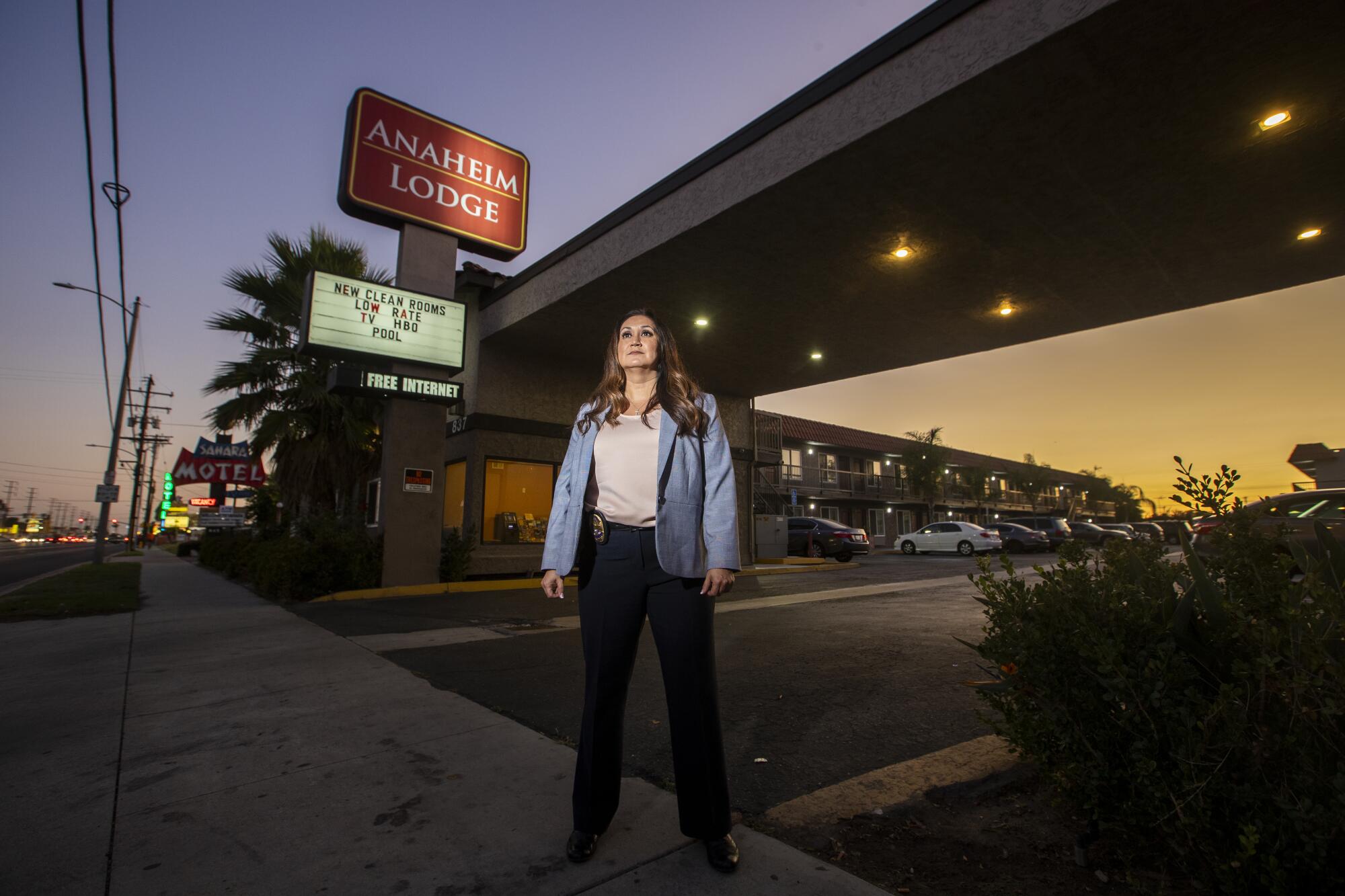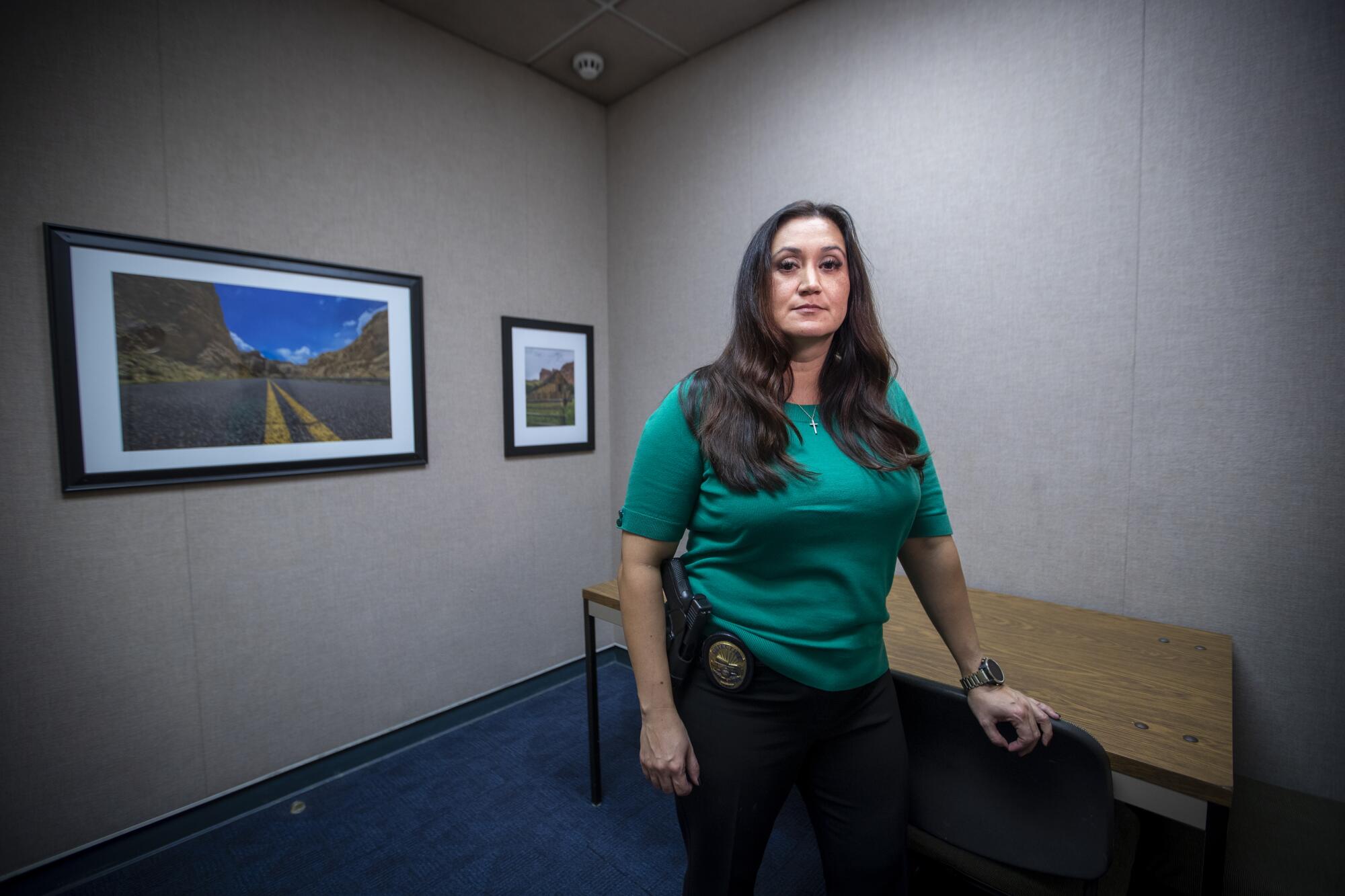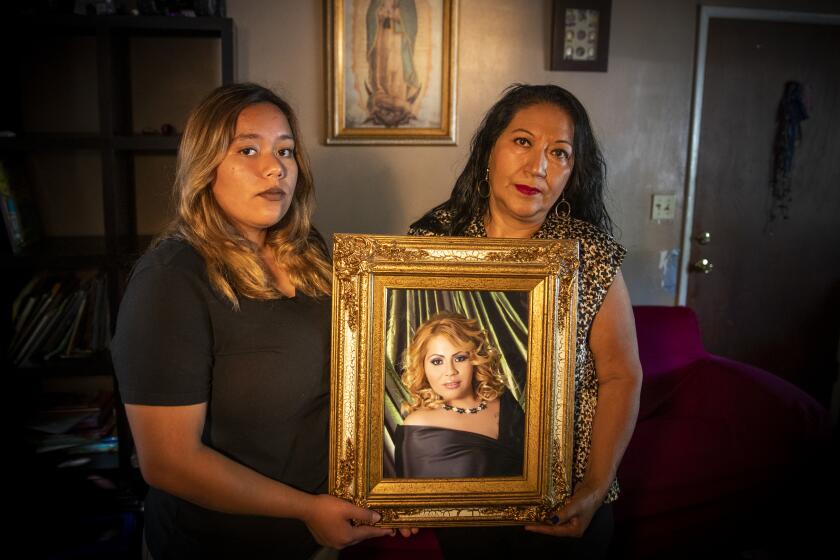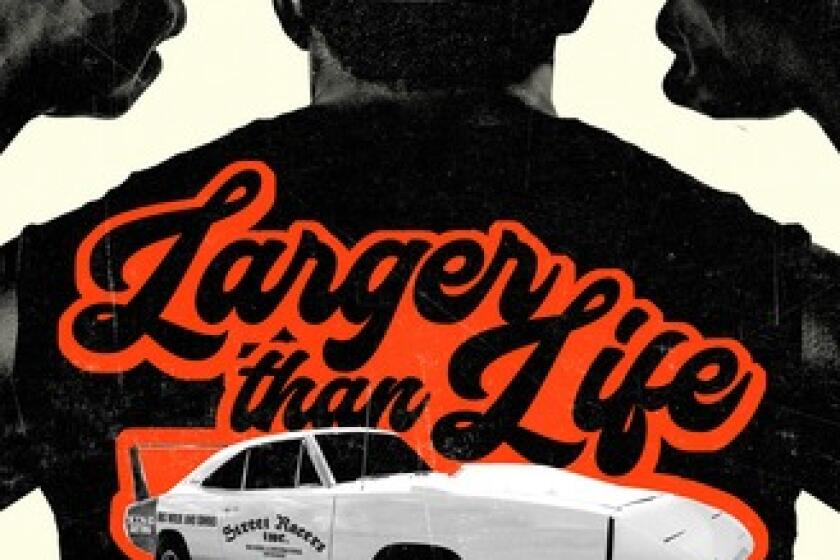
At a serial killer’s trial, a Times reporter met the homicide detective at the center of the case — and found a story of tenacious policework and obsession.
- Share via
When a young woman’s body was found at a trash-sorting plant, Anaheim Police Department homicide Det. Julissa Trapp promises the victim’s mother she would find the killer.
I first met Anaheim Police Det. Julissa Trapp at the Orange County courthouse in late 2016, during the trial of Steven Gordon, who was accused of the rapes and murders of four women.
Scores of cops from myriad agencies had swirled around the case, but Trapp had been its steady, relentless center, and now she sat with the prosecutor just a few feet from an erratic defendant whose rage flared unpredictably.
Gordon was representing himself. Because of his volatility, bailiffs worried that Gordon — whose feet were chained but whose hands were free — might lunge at the detective who had done more than anyone to bring him here.
During breaks in testimony, I watched Trapp walk into the aisles to speak to the devastated mothers of the four known victims, doing her best to answer their questions, but mostly to reassure them that they had a friend. They asked if she knew the pain of losing a child, and she told them of her miscarriages, of how hers were gone before they were born.
Her effort seemed to extend way beyond professional courtesy, and it helped to mend a helpless anger the victims’ families had felt toward police early in the case.
The mothers believed police hadn’t looked hard enough because their daughters had records for prostitution. If the killers had picked their victims on the assumption their disappearance wouldn’t rank as a high law enforcement priority, they had gambled correctly.
I learned that Trapp had taken a big risk when she inherited the case in March 2014 with the discovery of 21-year-old Jarrae Estepp’s mangled body at a trash-sorting plant in Anaheim. She promised Estepp’s mother she’d find the killer.
It’s the sort of promise detectives make in movies, but that their real-life counterparts are loath to do, because they know how many murders go unsolved, how a thousand unforeseeable things can relegate them to the permanent cold-case file.
As I got to know Trapp over the course of many interviews over the next three years, I came to realize the terrible burden she would have carried if she hadn’t been able to make good on the promise. She knew too, but she’d done it anyway.
I wanted to know who Trapp was and how she thought about her work and how she went about it, and she spoke to me with striking candor.
I became especially interested in her willingness to dive into the pain of the victims’ families and absorb it and use it as fuel, while other homicide detectives built self-protective firewalls against the awfulness they witnessed year after year.
Apart from her intense and sincere empathy for victims’ families, what struck me about Trapp was her ability to forge a convincing and weaponizable counterfeit of it when she interviewed Gordon at marathon length. She mined her personal life — mined her deepest sadness, in fact — and transformed it into interrogation-room currency.
As I got to know her, it was hard to miss her talent as a chameleon — her ability to turn herself into who she needed to be for the job at hand.
On the streets during prostitution stings, she was a fast-talking streetwalker in heels and fishnets. On the phone with a pimp, she was a teenage girl with a squeaky voice looking for an older man’s love. In the interrogation room with Gordon, she was both a confidante and a maternal figure who brought him food and a blanket and told him she understood. At a crime scene, she was a battlefield general.

Joe Nannery, a retired lieutenant at the San Francisco Police Department, teaches the case during a law enforcement training course for patrol officers graduating to detective work. He speaks of how large the case became, with the involvement of local, state and federal agencies, and of Trapp’s ability to shift roles from tactician to manager to interrogator.
He points out choices Trapp made during an interrogation he compared to “a 13-hour chess match,” such as the position of her body in relation to Gordon’s. “Every time I watch it, the hair goes up on my neck,” Nannery said.
Trapp is the only woman in the homicide squad at the Anaheim Police Department, and the second-longest-serving detective on an eight-person team. Part of her story is her struggle to reach what she calls the “varsity squad” in an overwhelmingly male profession.
She acknowledges that there were special challenges she faced as a woman — the “tone thing” at times complicated her relations with superiors, and she had to prove herself in assignment after assignment in the face of skeptics — but she always downplays this part of her story. To her ear, it sounds like complaining.
More from Christopher Goffard
“Enter the mind of a serial killer” is the billboard tagline of a new TV drama, and after years of writing about crime I have to confess that I find small illumination or interest in that much-trodden, much-mythologized mental terrain. It’s not what drew me to this particular story.
When I met Gordon at the Orange County Jail, he struck me as a cipher, a blank, a nonentity, a violent misogynist with small grasp of why he did what he did and even less interest in figuring himself out.
The psychology of sadism is less interesting to me than the price exacted on good people who fight its consequences. Inside the mind of the intuitive, infinitely calculating detective — one who sweats details down to the unconscious effect the color of her blouse will have on the suspect — is a more compelling journey.
“Detective Trapp” has the semblance of a police procedural but is really a profile of a detective of high competence and uncommon dedication, walking through unimaginable darkness, and driven in part by unhealable personal wounds.
More to Read
Sign up for Essential California
The most important California stories and recommendations in your inbox every morning.
You may occasionally receive promotional content from the Los Angeles Times.








